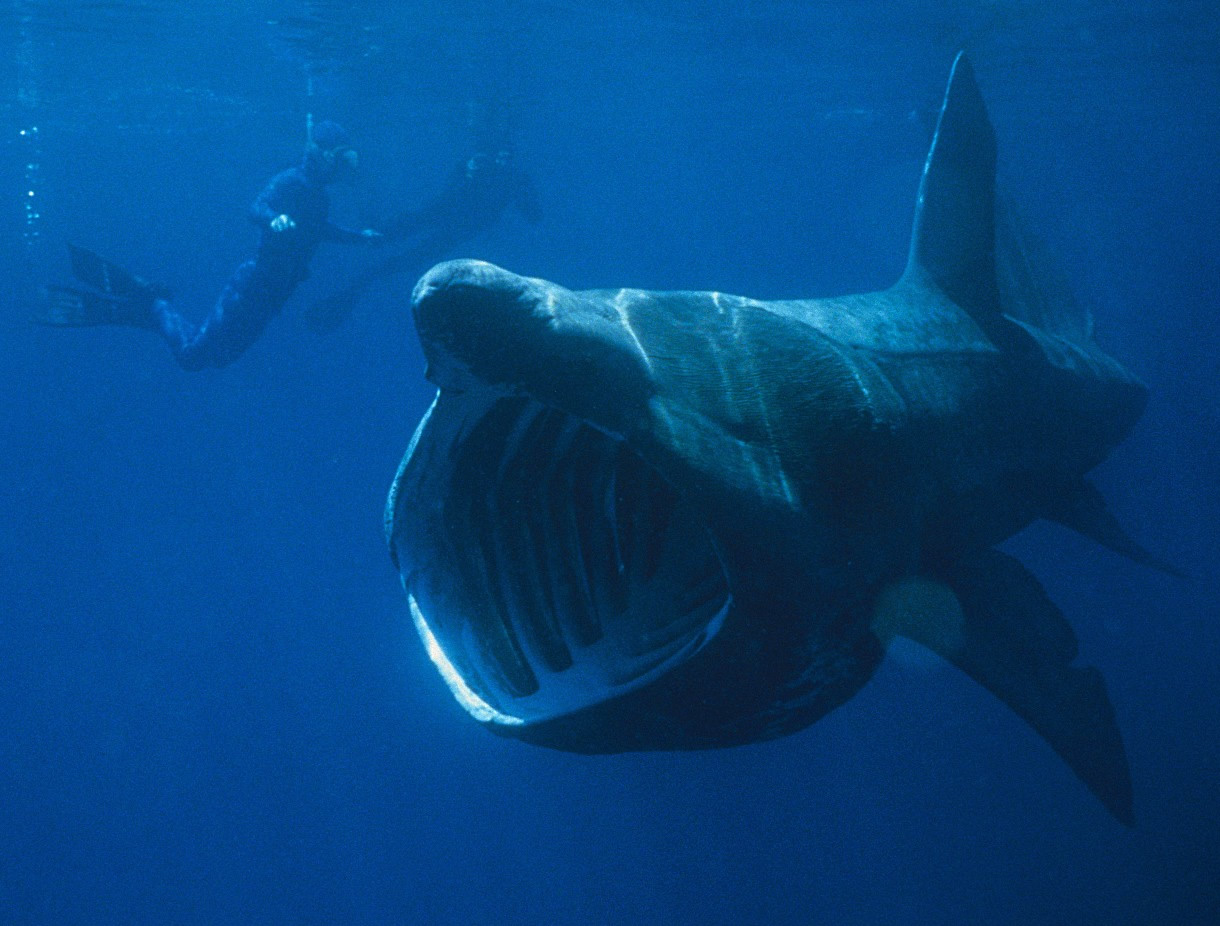
A monstrous shark measuring an estimated 25ft has washed up on a beach in Cornwall.
The creature came ashore over the weekend at Chapel Point near Mevagissey and while Basking sharks aren’t exactly rare in British waters the body presents a ‘rare opportunity’ for marine biologists.
Niki Clear, from the Marine Strandings Network (MSN) a group run by Cornwall Wildlife Trust, explained that Basking sharks normally sink when they die so this find is a very rare opportunity (they usually find one a year) for the MSN .
Sadly a Basking Shark has washed up dead at Chapel Point, South of Portmellon #Cornwall. Photographer Matthew Facey took this photo. pic.twitter.com/fCUfpWfhPD
— BBC Radio Cornwall (@BBCCornwall) April 24, 2017
Volunteers from the MSN at Cornwall Wildlife Trust are now investigating the body to confirm the exact species, size and gender, Cornwall Live reports.
Ms Clear said:
Once the team have confirmed it is a basking shark, and finished all analysis, they will contact Exeter University and Plymouth University to see if any samples are needed. They are an extremely interesting species to study.
Because basking sharks only eat plankton, they can help to show the overall marine health.
 Chris Gotschalk.
Chris Gotschalk. The dead beast was discovered by Matthew Facey a photographer who was using a drone to take pictures of the coast on Sunday when he spotted the floating carcass.
Facey said:
I’d heard from a customer that they’d seen a ‘whale’ dead near Chapel Point, so thought I’d have a walk out for a look.
I’m told by my fishing friends this is a female basking shark, she’s obviously been dead a while, no signs on the outside of her, but she is now food for crabs and seagulls, so it’s not all bad.
 yohancha Basking Shark
yohancha Basking SharkA number of Basking sharks have already been spotted around Cornwall, with April and May reportedly the best months of the year to spot them.
Anyone who comes a cross a dead animal in the sea is advised to call the Marine Strandings Network on 0345 201 2626
More of a concept than a journalist, Tom Percival was forged in the bowels of Salford University from which he emerged grasping a Masters in journalism.
Since then his rise has been described by himself as ‘meteoric’ rising to the esteemed rank of Social Editor at UNILAD as well as working at the BBC, Manchester Evening News, and ITV.
He credits his success to three core techniques, name repetition, personality mirroring, and never breaking off a handshake.